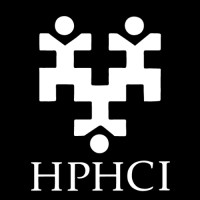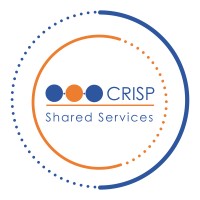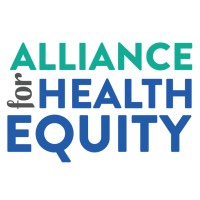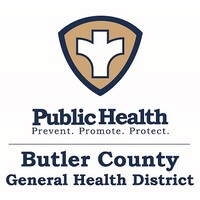Company Details
harvard-pilgrim-health-care-institute
177
1,636
92312
populationmedicine.org
0
HAR_2983883
In-progress

Harvard Pilgrim Health Care Institute Company CyberSecurity Posture
populationmedicine.orgThe Department of Population Medicine (DPM) in the Harvard Pilgrim Health Care Institute is a research and teaching collaboration between Harvard Pilgrim Health Care and Harvard Medical School. The Department was created in 1992 to focus on research and education as they relate to the care of large defined populations, including individuals who do not seek out care. As the nation's first medical school appointing department based in a health plan, we are strategically positioned to improve population health and health care delivery locally, nationally, and internationally. We’re distinctive for our scope, expertise, and collaborations. Our mission and activities are highly consonant with the National Academy of Medicine’s advocacy for a national Learning Health System – one that incorporates evidence-based practices into routine care, captures new knowledge as part of the ongoing delivery of care, and then applies new knowledge in a timely manner. The Department is housed in the Harvard Pilgrim Health Care Institute, a limited liability corporation of Harvard Pilgrim Health Care. We are one of 15 Harvard Medical School affiliates. In 2021, Harvard Pilgrim Health Care combined with Tufts Health Plan, creating Point32Health. The Institute is also part of Point32Health and now partners with both health plans. Dr. Emily Oken is both Department Chair and President of the HPHC Institute.
Company Details
harvard-pilgrim-health-care-institute
177
1,636
92312
populationmedicine.org
0
HAR_2983883
In-progress
Between 750 and 799

 HPHCI Global Score (TPRM)
HPHCI Global Score (TPRM)XXXX



No incidents recorded for Harvard Pilgrim Health Care Institute in 2025.
No incidents recorded for Harvard Pilgrim Health Care Institute in 2025.
No incidents recorded for Harvard Pilgrim Health Care Institute in 2025.
HPHCI cyber incidents detection timeline including parent company and subsidiaries

The Department of Population Medicine (DPM) in the Harvard Pilgrim Health Care Institute is a research and teaching collaboration between Harvard Pilgrim Health Care and Harvard Medical School. The Department was created in 1992 to focus on research and education as they relate to the care of large defined populations, including individuals who do not seek out care. As the nation's first medical school appointing department based in a health plan, we are strategically positioned to improve population health and health care delivery locally, nationally, and internationally. We’re distinctive for our scope, expertise, and collaborations. Our mission and activities are highly consonant with the National Academy of Medicine’s advocacy for a national Learning Health System – one that incorporates evidence-based practices into routine care, captures new knowledge as part of the ongoing delivery of care, and then applies new knowledge in a timely manner. The Department is housed in the Harvard Pilgrim Health Care Institute, a limited liability corporation of Harvard Pilgrim Health Care. We are one of 15 Harvard Medical School affiliates. In 2021, Harvard Pilgrim Health Care combined with Tufts Health Plan, creating Point32Health. The Institute is also part of Point32Health and now partners with both health plans. Dr. Emily Oken is both Department Chair and President of the HPHC Institute.


The consumer affiliate of the American Speech-Language-Hearing Association (ASHA), the National Association for Hearing and Speech Action (NAHSA) is the one organization focused solely on educating the public about communication health. Featuring members of ASHA's national network of audiologists an

CRISP Shared Services is a nonprofit dedicated to improving health infrastructure and data exchange technology nationwide. We collaborate with organizations to deliver modern, efficient solutions that enhance patient care, streamline care coordination and advance public health. With a proven track

This is a decisive moment in the history of human health. Over the last century, society has made incredible progress in extending life. But while life expectancy has increased, so has the amount of time spent in moderate to poor health. And significant inequities persist both across and within coun

Jefferson County Public Health (JCPH) is a nationally accredited health department committed to promoting health and preventing injury and disease for the residents of Jefferson County, Colorado. Public health is what we as a society do collectively to prevent illness and premature death and promote

The Alliance for Health Equity is a partnership between the Illinois Public Health Institute, hospitals, health departments, and community organizations across Chicago and Cook County. This initiative is one of the largest collaborative hospital-community partnerships in the country with the curren

The Butler County Board of Health was incorporated on February 20, 1920, with the ideal of creating an organization that would strive to help secure the right to a sound body and a healthy life for the citizens of the Butler County Health District. The health department staff continue to strive to a
.png)
New federal loan limits in the OBBBA threaten to increase medical school debt and worsen physician shortages, impacting diversity in health...
In 2023, 725 data breaches were reported to OCR and across those breaches, more than 133 million records were exposed or impermissibly disclosed.
Harvard Pilgrim Health Care agreed to a $16 million class action lawsuit settlement to resolve claims it failed to prevent a 2023 data breach.
New perspective calls for regulatory reforms to address the rising trend of physician strikes in the U.S. based on international examples.
The Uber ride to Boston was already booked when Denise Micale, 69, of Westport noticed a $990 charge on her bank statement late last summer...
Harvard Pilgrim Health Care has issued an updated notification to the Maine Attorney General about its April 2023 ransomware attack,...
Two studies show the negative health effects of food insecurity on obesity and hospital visits – and how physicians can make a difference.
A Massachusetts healthcare provider is warning patients of a recently discovered data breach that compromised some personal information.
A spokesperson for BWPO says no Social Security Numbers, financial account numbers, or debit/credit card numbers were compromised, and...

Explore insights on cybersecurity incidents, risk posture, and Rankiteo's assessments.
The official website of Harvard Pilgrim Health Care Institute is https://www.populationmedicine.org/.
According to Rankiteo, Harvard Pilgrim Health Care Institute’s AI-generated cybersecurity score is 763, reflecting their Fair security posture.
According to Rankiteo, Harvard Pilgrim Health Care Institute currently holds 0 security badges, indicating that no recognized compliance certifications are currently verified for the organization.
According to Rankiteo, Harvard Pilgrim Health Care Institute is not certified under SOC 2 Type 1.
According to Rankiteo, Harvard Pilgrim Health Care Institute does not hold a SOC 2 Type 2 certification.
According to Rankiteo, Harvard Pilgrim Health Care Institute is not listed as GDPR compliant.
According to Rankiteo, Harvard Pilgrim Health Care Institute does not currently maintain PCI DSS compliance.
According to Rankiteo, Harvard Pilgrim Health Care Institute is not compliant with HIPAA regulations.
According to Rankiteo,Harvard Pilgrim Health Care Institute is not certified under ISO 27001, indicating the absence of a formally recognized information security management framework.
Harvard Pilgrim Health Care Institute operates primarily in the Public Health industry.
Harvard Pilgrim Health Care Institute employs approximately 177 people worldwide.
Harvard Pilgrim Health Care Institute presently has no subsidiaries across any sectors.
Harvard Pilgrim Health Care Institute’s official LinkedIn profile has approximately 1,636 followers.
Harvard Pilgrim Health Care Institute is classified under the NAICS code 92312, which corresponds to Administration of Public Health Programs.
No, Harvard Pilgrim Health Care Institute does not have a profile on Crunchbase.
Yes, Harvard Pilgrim Health Care Institute maintains an official LinkedIn profile, which is actively utilized for branding and talent engagement, which can be accessed here: https://www.linkedin.com/company/harvard-pilgrim-health-care-institute.
As of November 28, 2025, Rankiteo reports that Harvard Pilgrim Health Care Institute has not experienced any cybersecurity incidents.
Harvard Pilgrim Health Care Institute has an estimated 280 peer or competitor companies worldwide.
Total Incidents: According to Rankiteo, Harvard Pilgrim Health Care Institute has faced 0 incidents in the past.
Incident Types: The types of cybersecurity incidents that have occurred include .
.png)
Angular is a development platform for building mobile and desktop web applications using TypeScript/JavaScript and other languages. Prior to versions 19.2.16, 20.3.14, and 21.0.1, there is a XSRF token leakage via protocol-relative URLs in angular HTTP clients. The vulnerability is a Credential Leak by App Logic that leads to the unauthorized disclosure of the Cross-Site Request Forgery (XSRF) token to an attacker-controlled domain. Angular's HttpClient has a built-in XSRF protection mechanism that works by checking if a request URL starts with a protocol (http:// or https://) to determine if it is cross-origin. If the URL starts with protocol-relative URL (//), it is incorrectly treated as a same-origin request, and the XSRF token is automatically added to the X-XSRF-TOKEN header. This issue has been patched in versions 19.2.16, 20.3.14, and 21.0.1. A workaround for this issue involves avoiding using protocol-relative URLs (URLs starting with //) in HttpClient requests. All backend communication URLs should be hardcoded as relative paths (starting with a single /) or fully qualified, trusted absolute URLs.
Forge (also called `node-forge`) is a native implementation of Transport Layer Security in JavaScript. An Uncontrolled Recursion vulnerability in node-forge versions 1.3.1 and below enables remote, unauthenticated attackers to craft deep ASN.1 structures that trigger unbounded recursive parsing. This leads to a Denial-of-Service (DoS) via stack exhaustion when parsing untrusted DER inputs. This issue has been patched in version 1.3.2.
Forge (also called `node-forge`) is a native implementation of Transport Layer Security in JavaScript. An Integer Overflow vulnerability in node-forge versions 1.3.1 and below enables remote, unauthenticated attackers to craft ASN.1 structures containing OIDs with oversized arcs. These arcs may be decoded as smaller, trusted OIDs due to 32-bit bitwise truncation, enabling the bypass of downstream OID-based security decisions. This issue has been patched in version 1.3.2.
Suricata is a network IDS, IPS and NSM engine developed by the OISF (Open Information Security Foundation) and the Suricata community. Prior to versions 7.0.13 and 8.0.2, working with large buffers in Lua scripts can lead to a stack overflow. Users of Lua rules and output scripts may be affected when working with large buffers. This includes a rule passing a large buffer to a Lua script. This issue has been patched in versions 7.0.13 and 8.0.2. A workaround for this issue involves disabling Lua rules and output scripts, or making sure limits, such as stream.depth.reassembly and HTTP response body limits (response-body-limit), are set to less than half the stack size.
Suricata is a network IDS, IPS and NSM engine developed by the OISF (Open Information Security Foundation) and the Suricata community. In versions from 8.0.0 to before 8.0.2, a NULL dereference can occur when the entropy keyword is used in conjunction with base64_data. This issue has been patched in version 8.0.2. A workaround involves disabling rules that use entropy in conjunction with base64_data.

Get company history
















Every week, Rankiteo analyzes billions of signals to give organizations a sharper, faster view of emerging risks. With deeper, more actionable intelligence at their fingertips, security teams can outpace threat actors, respond instantly to Zero-Day attacks, and dramatically shrink their risk exposure window.
Identify exposed access points, detect misconfigured SSL certificates, and uncover vulnerabilities across the network infrastructure.
Gain visibility into the software components used within an organization to detect vulnerabilities, manage risk, and ensure supply chain security.
Monitor and manage all IT assets and their configurations to ensure accurate, real-time visibility across the company's technology environment.
Leverage real-time insights on active threats, malware campaigns, and emerging vulnerabilities to proactively defend against evolving cyberattacks.




